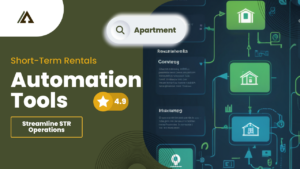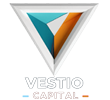Exercitation ullamco laboris nis aliquip sed conseqrure dolorn repreh deris ptate velit ecepteur duis.
Technological Advancements Simplifying Management: Making Short-Term Rentals More Profitable and Efficient
-
Vestio Capital > Education > Investing in Vacation Rentals > Technological Advancements Simplifying Management: Making Short-Term Rentals More Profitable and Efficient

The short-term rental (STR) market has evolved rapidly in recent years, largely thanks to significant technological advancements that have streamlined operations and made property management more efficient. For investors and property owners, embracing these technologies can mean reduced overhead, optimized rental pricing, and better guest experiences. In this article, we’ll explore how technological innovations are simplifying management for short-term rentals and boosting profitability.
1. Automation Tools for Operational Efficiency
 One of the most significant benefits of technological advancement in the short-term rental industry is automation. Property management software platforms such as Guesty, Hostfully, and Lodgify offer comprehensive solutions that automate various aspects of property management, from guest communications and bookings to check-in/check-out processes.
One of the most significant benefits of technological advancement in the short-term rental industry is automation. Property management software platforms such as Guesty, Hostfully, and Lodgify offer comprehensive solutions that automate various aspects of property management, from guest communications and bookings to check-in/check-out processes.
Automation allows property managers to handle multiple properties with minimal manual intervention, freeing up time for other essential tasks. For example, automated messaging systems can respond to guest inquiries instantly, provide instructions for check-in, and send reminders, all without the need for human intervention. This not only improves the guest experience but also reduces the workload for property managers.
Additionally, automation can streamline cleaning and maintenance operations. With smart scheduling tools, cleaning crews and maintenance staff can be automatically notified when a guest checks out, ensuring quick turnarounds between stays. This level of efficiency helps keep the property in top condition and ready for the next guest, reducing downtime and maximizing occupancy.
2. Dynamic Pricing Algorithms
As discussed in the previous article, dynamic pricing tools have revolutionized the short-term rental industry by allowing property owners to adjust their rates based on real-time market conditions. Tools like Beyond Pricing, Wheelhouse, and PriceLabs analyze a wide range of data points, including local events, market demand, competitor rates, and seasonality, to suggest the optimal nightly rate for each property.
These tools ensure that rental prices are competitive while maximizing revenue, all without requiring constant manual adjustments. Dynamic pricing algorithms help property owners capitalize on high-demand periods by increasing rates and filling vacancies during slower times by offering more attractive prices.
By leveraging technology to set the right price at the right time, short-term rental owners can significantly boost their income and reduce vacancy risk, making their investments more profitable.
3. Smart Home Technology
The adoption of smart home technology has also played a crucial role in simplifying short-term rental management. Smart locks, thermostats, security cameras, and lighting systems can be controlled remotely, giving property owners the ability to manage their properties from anywhere in the world.
For example, smart locks allow for keyless entry, which eliminates the need for physical key exchanges and allows guests to check in at their convenience. Property owners can simply send a unique access code to the guest, which can be set to expire after their stay. This not only enhances security but also reduces the logistical challenges of coordinating check-ins and check-outs, especially for properties in different locations.
Smart thermostats and lighting systems allow property owners to monitor and control energy usage, reducing utility costs and ensuring that the property is comfortable for guests upon arrival. Security cameras and sensors can help monitor the property for unauthorized access or damage, adding an extra layer of protection.
These smart home technologies contribute to a smoother guest experience while also making property management more efficient and cost-effective.
4. Centralized Management Platforms
Managing multiple short-term rental properties across different platforms can be challenging, but centralized management platforms have simplified this process. Software like iGMS, Hostaway, and Your Porter App allow property owners to sync their listings across multiple channels such as Airbnb, Vrbo, and Booking.com from a single dashboard.
These platforms provide a centralized hub for managing reservations, guest communications, pricing, and availability, making it easier for property owners to keep track of all their bookings and ensure consistency across platforms. Centralized management platforms also reduce the risk of double bookings, as they automatically update availability across all channels in real-time.
By consolidating all aspects of property management into one platform, these tools streamline operations and allow property managers to scale their businesses more easily.
5. Improved Guest Experience Through Technology
Technology has not only made short-term rental management more efficient but also enhanced the guest experience. From automated check-in processes to personalized communication, technology allows property owners to provide a level of service that rivals or even surpasses traditional hotels.
For example, many property management platforms enable owners to send personalized welcome messages, offer recommendations for local attractions, and provide digital house manuals that guests can access on their smartphones. Some platforms also allow guests to book additional services, such as airport transfers or in-home chefs, directly through the app, enhancing the overall experience.
By offering a seamless and personalized experience, property owners can attract more bookings, receive better reviews, and ultimately increase their profitability.
Conclusion
Technological advancements have transformed the short-term rental industry, making property management more efficient, reducing costs, and improving the guest experience. Automation tools, dynamic pricing algorithms, smart home technology, centralized management platforms, and improved guest interactions are all contributing to a more streamlined and profitable business model for short-term rental owners.
For investors and property owners looking to maximize their returns in the short-term rental market, embracing these technologies is no longer optional—it’s essential. By leveraging the power of technology, property owners can stay competitive, increase their efficiency, and enhance the overall profitability of their STR investments.

